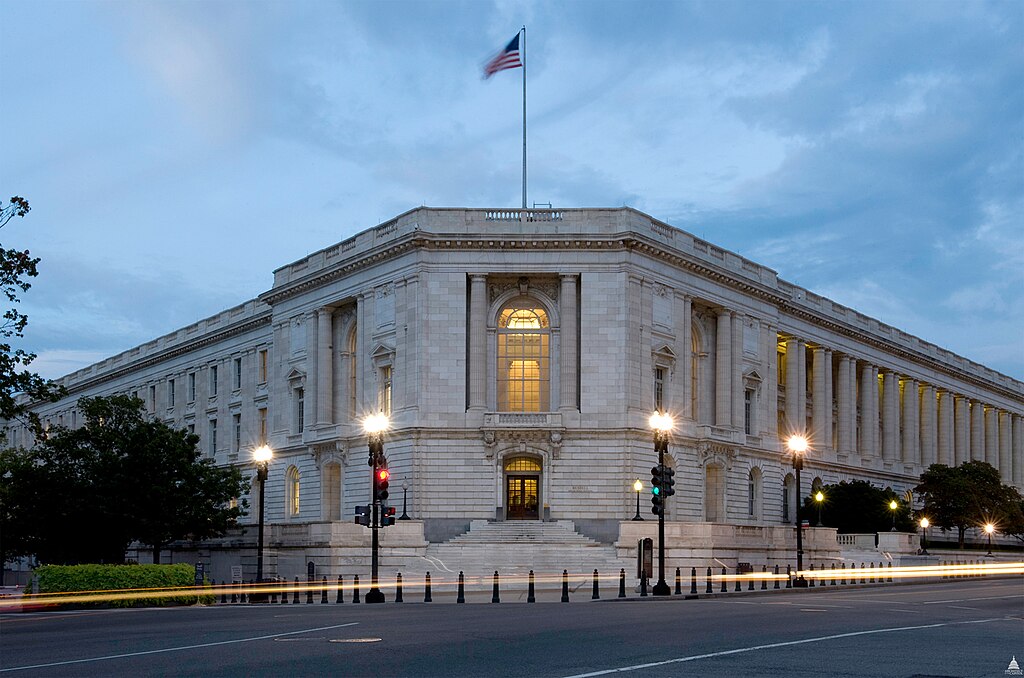Senate Republicans have introduced two bills targeting electric vehicle (EV) incentives, aiming to eliminate the $7,500 federal tax credit and impose a new $1,000 fee on EV purchases to fund road repairs. Led by Senator John Barrasso and backed by 14 others, including Senate Majority Leader John Thune, the legislation seeks to end the EV tax credit for new and used cars, terminate incentives for leased EVs, and halt the federal investment tax credit for charging stations. If passed, the credits would be eliminated within 30 days.
The proposed $1,000 EV fee, led by Senator Deb Fischer, would serve as a one-time payment at purchase, compensating for lost gas tax revenue that funds highway repairs. Fischer noted that gas-powered vehicle owners contribute around $87 to $100 annually in fuel taxes, while EVs, which can weigh up to three times more than conventional cars, contribute nothing to road maintenance.
Most U.S. road repair funding comes from fuel taxes, but since 2008, over $275 billion, including $118 billion from the 2021 infrastructure law, has been diverted from the general fund to cover rising costs. Some states have already introduced EV fees to help bridge the gap.
Detroit automakers, having invested billions in EV and battery production, are pushing to maintain tax incentives, or at least see them phased out gradually. Meanwhile, Transportation Secretary Sean Duffy acknowledged the need for EVs to contribute to road use funding but suggested finding an effective implementation method.
The move comes amid broader policy shifts, with the Trump administration freezing EV charging funds and seeking to roll back emissions regulations that would require automakers to produce more EVs. While EV adoption is growing, affordability and infrastructure challenges remain key concerns for consumers.



 SpaceX Pushes for Early Stock Index Inclusion Ahead of Potential Record-Breaking IPO
SpaceX Pushes for Early Stock Index Inclusion Ahead of Potential Record-Breaking IPO  Trump Signs Executive Order Threatening 25% Tariffs on Countries Trading With Iran
Trump Signs Executive Order Threatening 25% Tariffs on Countries Trading With Iran  Hims & Hers Halts Compounded Semaglutide Pill After FDA Warning
Hims & Hers Halts Compounded Semaglutide Pill After FDA Warning  Norway Opens Corruption Probe Into Former PM and Nobel Committee Chair Thorbjoern Jagland Over Epstein Links
Norway Opens Corruption Probe Into Former PM and Nobel Committee Chair Thorbjoern Jagland Over Epstein Links  Trump Endorses Japan’s Sanae Takaichi Ahead of Crucial Election Amid Market and China Tensions
Trump Endorses Japan’s Sanae Takaichi Ahead of Crucial Election Amid Market and China Tensions  Trump Signs “America First Arms Transfer Strategy” to Prioritize U.S. Weapons Sales
Trump Signs “America First Arms Transfer Strategy” to Prioritize U.S. Weapons Sales  Paul Atkins Emphasizes Global Regulatory Cooperation at Fintech Conference
Paul Atkins Emphasizes Global Regulatory Cooperation at Fintech Conference  Trump Lifts 25% Tariff on Indian Goods in Strategic U.S.–India Trade and Energy Deal
Trump Lifts 25% Tariff on Indian Goods in Strategic U.S.–India Trade and Energy Deal  Trump Orders DHS to Avoid Protests in Democratic Cities Unless Federal Assets Are Threatened
Trump Orders DHS to Avoid Protests in Democratic Cities Unless Federal Assets Are Threatened  SoftBank and Intel Partner to Develop Next-Generation Memory Chips for AI Data Centers
SoftBank and Intel Partner to Develop Next-Generation Memory Chips for AI Data Centers  U.S. Lawmakers to Review Unredacted Jeffrey Epstein DOJ Files Starting Monday
U.S. Lawmakers to Review Unredacted Jeffrey Epstein DOJ Files Starting Monday  Elon Musk’s Empire: SpaceX, Tesla, and xAI Merger Talks Spark Investor Debate
Elon Musk’s Empire: SpaceX, Tesla, and xAI Merger Talks Spark Investor Debate  South Korea Assures U.S. on Trade Deal Commitments Amid Tariff Concerns
South Korea Assures U.S. on Trade Deal Commitments Amid Tariff Concerns  Nvidia Confirms Major OpenAI Investment Amid AI Funding Race
Nvidia Confirms Major OpenAI Investment Amid AI Funding Race  Missouri Judge Dismisses Lawsuit Challenging Starbucks’ Diversity and Inclusion Policies
Missouri Judge Dismisses Lawsuit Challenging Starbucks’ Diversity and Inclusion Policies  Elon Musk’s SpaceX Acquires xAI in Historic Deal Uniting Space and Artificial Intelligence
Elon Musk’s SpaceX Acquires xAI in Historic Deal Uniting Space and Artificial Intelligence 































